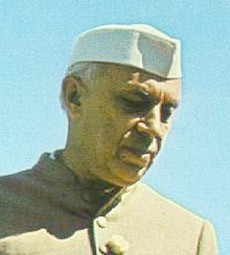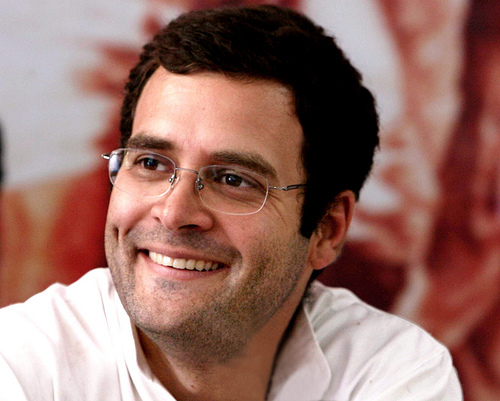In 1982, Kalam returned to the DRDO as director, focusing on Indigenous guided missiles. He was responsible for the development and operationalisation of the AGNI and PRITHVI missiles. This earned him the sobriquet "India's missile-man". He also helped in building healthcare products using technology developed for missiles.
In July 1992, Kalam became scientific advisor to India's defence minister. As the Principal Scientific Advisor to the Indian government, he held the rank of a Cabinet Minister. His work led to the successful Pokhran-II nuclear tests in 1998, which reiterated India's position as a nuclear weapon state. Kalam was also the Chairman, Ex-officio, of the Scientific Advisory Committee to the Cabinet (SAC-C) and piloted India Millennium Mission 2020.
Kalam took up academic pursuit as Professor, Technology & Societal Transformation at Anna University, Chennai from November 2001 and was involved in teaching and research tasks. Above all, he took up a mission to ignite the young minds for national development by meeting high school students across the country.
Kalam was elected the 11th President of India and took office on July 25, 2002.
Honours
Kalam has the unique distinction of having received honorary doctorates from at least thirty universities, as also India's three highest civilian honours - the Padma Bhushan in 1981; the Padma Vibhushan in 1990; and the Bharat Ratna in 1997. He has recently refused a honorary doctorate from a University, claiming he is satisfied with the ones he has earned with his hardwork and determination
Kalam has been the subject of vicious criticism from leftists in the Indian press, [1], Praful Bidwai being among his staunchest critics. In popular forums on the web such as this one [2] Kalam has been derided for his appearance and his perceived closeness to the earlier Bharatiya Janata Party led administration.
He has also been widely criticized for giving his assent for the dissolution of Bihar assembly in the middle of the night without holding any serious discussions with legal experts. During the recent Controversy of reservations in Central government funded universities and colleges in India, it was alleged that he acted no more than a mute spectator and could have played a more active role.
This can be attributed to the limited power that the Constitution of the Country confers on the President. Under the Indian constitution, President can either give his consent to a bill or send the Bill back to the Lok Sabha for review in accordance with Section 111 of the Constitution. In case Lok Sabha again sends the Bill to the President, the president has no other option but to give his consent. Under the limitation that the President works, the majority opinion is that A.P.J. Abdul Kalam is doing a good job in the present circumstances
As a rule Muslim industry leaders, scholars, and politicians who have made a name for themselves in India and Pakistan have been from the elite classes of their community, such as the Kutchi Memons, the Bohras, or the wealthy families of Hyderabad and Lucknow. Kalam is the first Muslim from Southern India from a Muslim community that does not speak Urdu to have achieved the kind of recognition he has. His idea of India's interests is modernist and nationalistic. This stands in contrast to the articulation of India's interests by different groups across India's political spectrum. The Congress and its related formations derive their idea of national interest from the ideas expressed by Jawaharlal Nehru, India's first Prime Minister, that sees India as an historic entity that must stand at the forefront of nations that have won their independence during the 20th century from colonial powers and are trying to create societies with regulated economic systems. The communist parties of India and its allies see India as an entity of the 20th century and a temporary creation of the current capitalist phase of human society that should some day be a part of a worldwide classless and nationless socialist economy that is the final and inevitable endpoint of human progress. The Hindu nationalist Bharatiya Janata Party sees India as an entity inspired by its Hindu heritage that is required to recapture its once glorious position on the world stage, with its current structure of a Nation State being a modern requirement. Kalam's views are inspired partly by Nehru's ideas and those articulated by Hindu nationalists and he attempts to draw the best from both. While rejecting Nehru's role for India as a spokesperson of other nations with perceived common interests, his views also reject the Hindu nationalist idea of a national identity based on a religious heritage. Kalam point of view however makes no room whatsoever for the Indian left's idea of India. This may be a reason why leftists journalists in India have criticized him. Kalam's belief in the power of technology to resolve society's problems and his views of these problems as a result of inefficient distribution of resources is modernistic. He also sees science and technology as ideology free areas and emphasizes the cultivation of a scientific temper and an entrepreneurial drive. In this he finds much support among India's new economy business leaders some of whom especially the founders of Infosys have begun their career as technology professionals much in the same way as Kalam has.
Trivia
He loves children, and encourages their audiences with him. For info about his work with the children of India. Visit his website [3] and visit "Children's Corner"
On Tuesday, 14 February, 2006, he created history by becoming the country's first President to undertake an undersea journey. Abdul Kalam boarded the INS Sindhurakshak, a Russian-origin kilo class submarine, from the Visakhapatnam Naval dockyard. The duration of the journey was around three-and-half hours during which Kalam had lunch with the crewmembers.
He did his college studies at the Madras Institute of Technology, where he used to head the vegetarian mess
Initially he wanted to become a pilot, but opted for aeronautical engineering later.
On Thursday, 08 June, 2006, he created history by becoming the country's first president to undertake a sortie in an aircraft, the Sukhoi-30 MKI, the latest supersonic fighter aircraft, from Lohegaon airbase.The 74-year old created a record by becoming not just the first Indian President to fly a fighter jet but also the oldest Indian co-pilot to do so. The president donned the G Suit before boarding the aircraft, and was also given certain instructions by Air Force officials. He was strapped in by Corporal H L Ganesh into India's most modern all weather supersonic fighter aircraft. He flew at a height of six to eight kilometers in the air at a speed of 1500Km/Hr. The flight lasted 30 minutes. Wing Commander Ajay Rathore, Commanding Officer of the SU-30 MKI squadron flew the President.
















